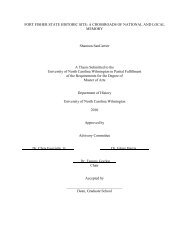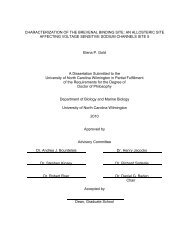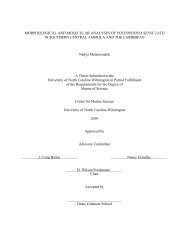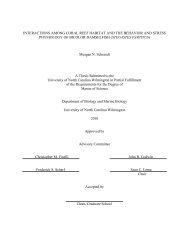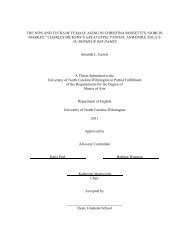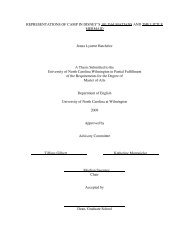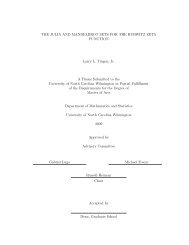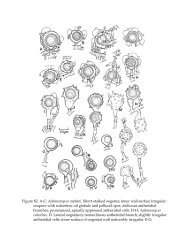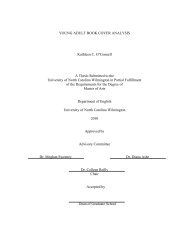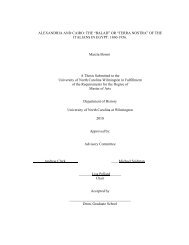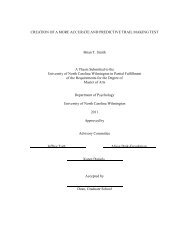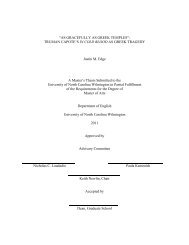AN AUGURY OF REVOLUTION: THE IRANIAN STUDENT ...
AN AUGURY OF REVOLUTION: THE IRANIAN STUDENT ...
AN AUGURY OF REVOLUTION: THE IRANIAN STUDENT ...
You also want an ePaper? Increase the reach of your titles
YUMPU automatically turns print PDFs into web optimized ePapers that Google loves.
the potential to provide an alternative focus of power to that of the government. 46 Iranian<br />
students studying in the United States and Western Europe during the turbulent 1960s developed<br />
their critiques of Shah Mohammad Reza Pahlavi’s regime, while at the same time formulating<br />
their own alternate discourses on Iranian politics that became radicalized as the decade<br />
progressed.<br />
Amidst these developments, a wealth of scholarship was produced by a wide array of<br />
historians. The United States did not emerge as a world power until the end of World War II,<br />
and the historiography of American foreign relations has been a relatively recent development.<br />
Literature pertaining to American foreign policy in the Middle East, including Iran, is an even<br />
more recent development. Before the Allied occupation of Iran during World War II, the<br />
American presence in the country was limited to missionaries and economic advisors.<br />
Therefore, historians the 1950s reached a consensus on the benevolent interests of the United<br />
States in Persia. American benevolence was contrasted with British and Russian policy with<br />
Qajar-ruled Iran in the nineteenth century when both imperial nations competed in the “Great<br />
Game” for dominance in Central and Southwest Asia.<br />
From the 1940s to the 1970s, Iran played a major role in American foreign policy, and<br />
historians began to analyze U.S. – Iranian relations within the context of the Cold War. Some<br />
historians still made the case for American benevolence in Iran. However, revisionist critiques<br />
emerged by the late 1960s emphasizing the role that economic self-interest played in American<br />
foreign policy. At the same time, because of its war in Vietnam, many historians began to view<br />
the United States as an imperial power whose presence was felt throughout the developing<br />
world, including Iran.<br />
46 Odd Arne Westad, The Global Cold War: Third World Interventions and the Making of our Times (Cambridge<br />
University Press, 2005), 254-5.<br />
15



